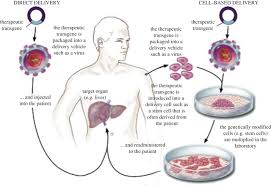
Breaking News
 BREAKING: ACTIVE SHOOTER at Brown University - Two People Dead - 8 Critically Injured
BREAKING: ACTIVE SHOOTER at Brown University - Two People Dead - 8 Critically Injured
 Argentina Moves to Let Banks Offer Bitcoin and Crypto Services
Argentina Moves to Let Banks Offer Bitcoin and Crypto Services
 We're One Storm Away From Disaster
We're One Storm Away From Disaster
 Think a Dairy Cow Will Tie You Down? Here's the Truth.
Think a Dairy Cow Will Tie You Down? Here's the Truth.
Top Tech News
 This tiny dev board is packed with features for ambitious makers
This tiny dev board is packed with features for ambitious makers
 Scientists Discover Gel to Regrow Tooth Enamel
Scientists Discover Gel to Regrow Tooth Enamel
 Vitamin C and Dandelion Root Killing Cancer Cells -- as Former CDC Director Calls for COVID-19...
Vitamin C and Dandelion Root Killing Cancer Cells -- as Former CDC Director Calls for COVID-19...
 Galactic Brain: US firm plans space-based data centers, power grid to challenge China
Galactic Brain: US firm plans space-based data centers, power grid to challenge China
 A microbial cleanup for glyphosate just earned a patent. Here's why that matters
A microbial cleanup for glyphosate just earned a patent. Here's why that matters
 Japan Breaks Internet Speed Record with 5 Million Times Faster Data Transfer
Japan Breaks Internet Speed Record with 5 Million Times Faster Data Transfer
 Advanced Propulsion Resources Part 1 of 2
Advanced Propulsion Resources Part 1 of 2
 PulsarFusion a forward-thinking UK aerospace company, is pushing the boundaries of space travel...
PulsarFusion a forward-thinking UK aerospace company, is pushing the boundaries of space travel...
 Dinky little laser box throws big-screen entertainment from inches away
Dinky little laser box throws big-screen entertainment from inches away
 'World's first' sodium-ion flashlight shines bright even at -40 ºF
'World's first' sodium-ion flashlight shines bright even at -40 ºF
CRISPR gene therapy is enhancing t-cell immnotherapy treatment of cancer and ...

1. being more-effective tumor responses.
2. the targeted nature of CRISPR-mediated CAR integration into the genome might "prove safer than random integration, which carries the potential risk of generating a harmful mutation," Dr. Maus wrote.
3. It could enable off-the-shelf CAR T cells to be made that need not come from a patient's own T cells. This would enable easier and cheaper manufacture of CAR T cells.
New gene-editing technologies will likely lead to rapid improvement in antigen-targeted T-cell immunotherapies for cancer.
David Edgell, an associate professor of biochemistry at the University of Western Ontario, thinks CRISPR treatments could be available within the next two to three years, with modified T-cells used to treat some types of cancer (there are already clinical trials for lung cancer in China, and a similar one slated to take place at the University of Pennsylvania was approved last June by the National Institutes of Health



